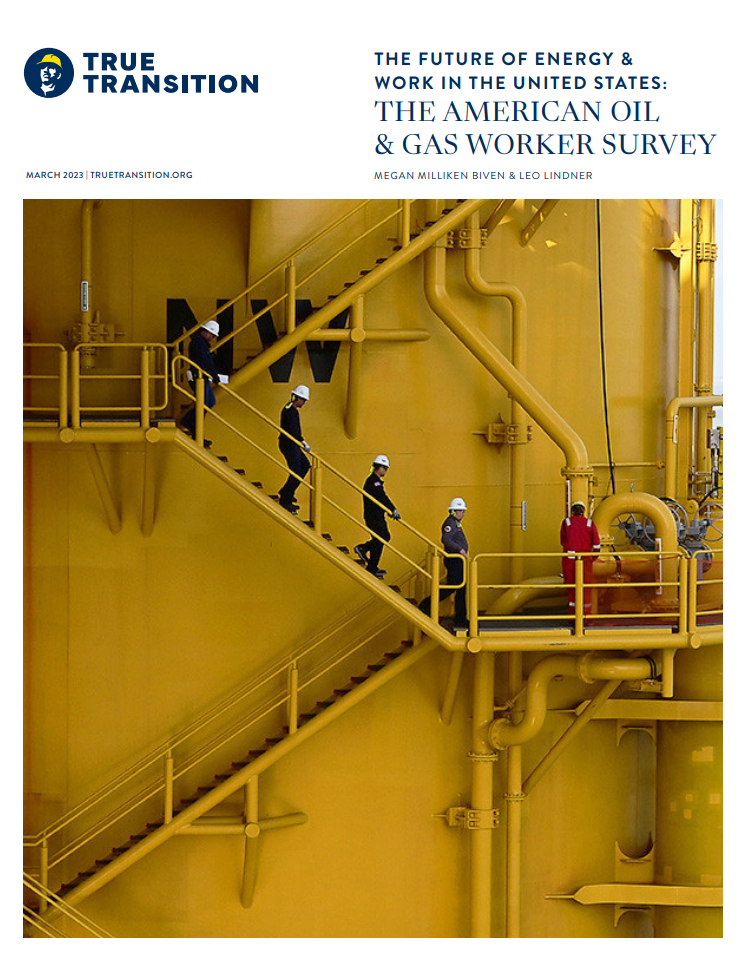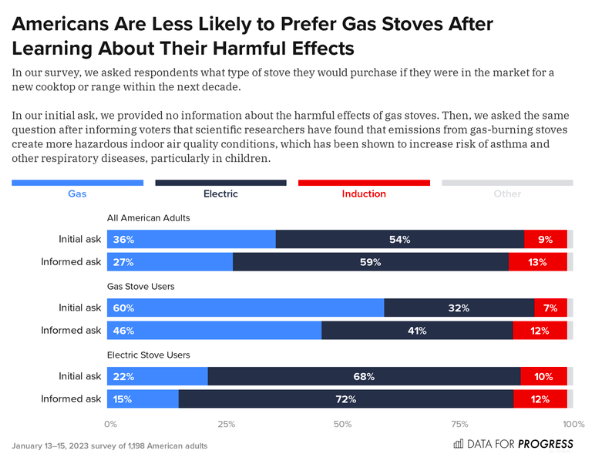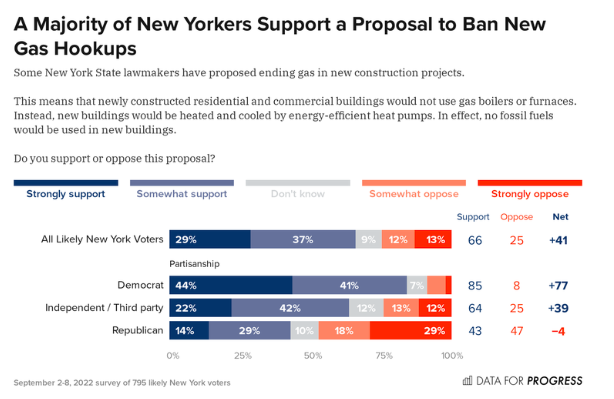Resources
Search below for resources covering the intersection of climate engagement, social science and data analytics.
RESULTS
The Future of Energy & Work in the United States: The American Oil & Gas Worker Survey
Cross sectional survey of 1,635 non-management oil and gas workers in the US revealed new insights and key themes relevant to a truly "just transition" from fossil fuels, including:
Environmental Polling Roundup - March 10th, 2023
This post includes climate and environment headlines, data points, and key takeaways from recent public polls - including polling about people’s willingness to talk about climate change, new polling on the East Palestine disaster, and a new industry-funded poll in New York State about the state’s Climate Act and residential gas.
The Fossil Fuel Industry’s Own Poll Found Most New Yorkers Support a Gas Ban in New Buildings
Polling commissioned by oil and gas companies shows that New Yorkers support climate action and want to phase out residential gas. 74% of New Yorkers support the state “aggressively moving to reduce greenhouse gas emissions”. 65% of New Yorkers support the goal of having 1 to 2 million New York homes heated with electric heat pumps rather than natural gas or oil-fueled furnaces by 2030. 65% of New Yorkers support the goal of electrifying 85% of New York homes and commercial buildings with electric heat pumps by 2050.
How to beat the ‘fracking frenzy’ — lessons from the campaign that ended fracking in Ireland
The successful Irish anti-fracking struggle offers key insights on community power building for anti-extraction movements all over the world. In 2017, community activists in Ireland mobilized a grassroots movement that forced the state to revoke fracking company Tamboran’s license and ban fracking. The first step towards defeating Tamboran in Ireland was building a movement rooted in the local community. Out of this experience, five key “rooting strategies” for local organizing emerged — showing how the resistance developed a strong social license and built community power. First, build from and on relationships. Second, foster ‘two-way’ community engagement. Third, celebrate community. Fourth, connect to culture. Fifth, build networks of solidarity. Four key political strategies include: find strategic framings; demonstrate resistance; engage politicians before regulators; focus on the parliament.
Environmental Polling Roundup - February 3rd, 2023
This post includes climate and environment headlines, data points, and key takeaways from recent public polls - including a new edition of Yale and George Mason's long-running "Climate Change in the American Mind" study that focuses on the politics and policy of climate change, as well as lots of new polling on gas stoves.
Poll: After Learning About Their Toxic Emissions, Americans Support Regulating Gas Stoves
Most Americans say they’re more likely to purchase an electric stove than a gas stove, and two-thirds support regulating the emissions from gas-burning stoves after reading about the harmful indoor pollution that they create. Most Americans (54%) would prefer to purchase an electric stove if they were in the market for a new stove, including majorities of both Democrats (57%) and Republicans (53%). After reading about harmful effects of gas stoves, people who said they would choose a gas stove as their first choice dropped from 36% to 27%.
Talk of banning gas stoves is fueling the flames
It’s better to prioritize policies and messaging to “make our future housing stock cleaner, healthier and safer and electrify our lives with abundance,” rather than banning gas stoves, which makes people think of sacrifice and should be avoided. Further, in telling a political narrative about the issue, blame the producer, not the consumer. It’s also important to remember that while we need to transition off dependence on gas heating and gas use in homes, changing home cooking will accomplish a tiny portion of our carbon pollution goal—it shouldn’t become the centerpiece of climate messaging.
Environmental Polling Roundup - January 13th, 2023
This post includes climate and environment headlines, data points, and key takeaways from recent public polls - including national polling about climate change and its impacts, national polling about extreme weather and congressional action on climate change, and new polling in New York State about the proposed end of gas hookups in new construction projects.
Voters Support New York’s Proposal to End Fossil Fuels in New Construction
Most New York State voters support the end of gas in new construction projects. 66% of New York State voters support ending gas in new construction projects (including 85% of Democrats and 43% of Republicans). Fewer than 50% of New Yorkers believe their political leaders have done enough to address climate change. More New Yorkers are concerned about “the cost of home energy bills” (85%) than “climate change” (74%) or “the air quality in their residence” (55%).
From divergence to convergence: Examining the energy transition expectations of oil and gas executives and investors
Amid a growing focus on net-zero, a recent Deloitte survey compares the expectations of oil and gas (O&G) executives and institutional investors around the energy transition. O&G companies cite a 28% average reduction in emissions over the last three years and remain confident about achieving a 50%–60% reduction in emissions by 2030. Additionally, there is a recognition that the O&G industry offers high dividend and buyback yield to investors, leading all industries with a combined yield of 8% in 2022. Although their paths toward net-zero might not be completely aligned, there seems to be a shared consensus between executives and investors on the industry’s potential to achieve its overarching goal.
Pagination
- Previous page
- Page 2
- Next page






